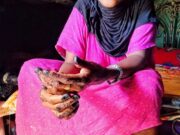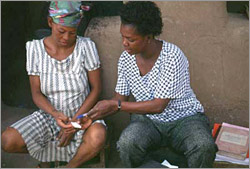Today, April 25 2014 is World Malaria Day, and I have been going through a couple of articles written with this regard.
And I have learnt something new today.
I didn’t know that people in malaria-prone regions are always advised to wear light-colored clothing that covers all the skin. Why? Because this is one of the best strategies to keep the mosquitoes away because mosquitoes get attracted to dark colors. Okay –that is totally new information to me!
While we are still talking malaria, let me share some information about pregnant women and malaria.
Malaria in pregnancy is a big problem, as it poses significant risks for both the mother and her baby. Pregnant women are especially vulnerable to malaria because pregnancy reduces a woman’s immunity to various infections, malaria being one of them.
Why malaria is dangerous in pregnant women is because it increases the risk of:
– Illness on the part of the pregnant woman
– Anaemia
– Her having a spontaneous abortion
– Her delivering a stillborn child
– Delivering a premature baby
– Having a baby with a low birth weight
In Africa, 200,000 newborns die each year because of malaria in pregnancy. Kenya has it’s contribution to this, because in 2012, slightly over 108,000 pregnant women in Kenya were diagnosed with malaria. That is a very high number ![]() . It is also interesting to note that 1 in 7 pregnant women who live in malaria-endemic zones in Kenya (where malaria prevalence is high), do not seek antenatal care. Meaning that for those who lost their babies because of malaria, this need not have happened. It is a sorry situation because malaria is very much preventable and it is very much treatable.
. It is also interesting to note that 1 in 7 pregnant women who live in malaria-endemic zones in Kenya (where malaria prevalence is high), do not seek antenatal care. Meaning that for those who lost their babies because of malaria, this need not have happened. It is a sorry situation because malaria is very much preventable and it is very much treatable.
So what can women do to prevent and treat malaria? WHO recommends the following package of interventions for the prevention and treatment of malaria during pregnancy:
– Use of long-lasting insecticide treated nets
– Intermittent preventive treatment
– Prompt diagnosis and effective treatment of malaria infections.
Where children are concerned, 1 out of 11 mothers does not believe that malaria medicine can provide relief for a child who has fever. Some mothers believe that a child’s fever should first be treated with herbs.
While most of us know the facts surrounding malaria prevention and treatment, it is our responsibility to share this information with others who don’t, especially fellow women.
Most of us have hired housegirls in our homes who help take care of our babies, and when some of them share their cultural beliefs with us, we laugh at them, tickled by how retrogressive some of their thinking can be –especially in this day and age.
However, we do them no justice when we fail to share with them the correct information. The price for ignorance is usually hefty, and it is always sad to learn that women die, babies die because of the myths, superstitions and various cultural beliefs that we have in our society. So in our own individual capacities, let us share the information we have. It never hurts, and the best thing is that you could be saving a life!
pictures courtesy: WHO








































